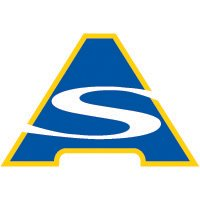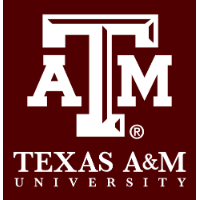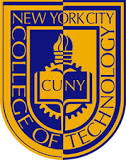What do they do?
Inspect, test, repair, or maintain electrical equipment in generating stations, substations, and in-service relays.
Also known as:
Apparatus Lineman, Electrical and Instrumentation Technician (E and I Technician), Electrical Maintenance Mechanic, Electrical Technician, Instrument and Control Technician (I and C Technician), Instrumentation and Control Technician (I and C Technician), Lineman, Maintenance Technician, Meter Technician, Protective Relay Technician, Relay Technician, Substation Electrician, Substation Mechanic, Substation Technician, Substation Wireman, Wireman
-
-1.7%
Change
Ranks #42 in job growth rate40Job Openings
Ranks #23 in net job growth
Colleges with the most graduates that become Electrical and Electronics Repairers, Powerhouse, Substation, and Relay
-
SUNY College of Technology at Alfred
Alfred, NY
-
Texas A&M University-College Station
College Station, TX
-
Purdue University-Main Campus
West Lafayette, IN
-
Victoria College
Victoria, TX
-
New River Community College
Dublin, VA
Looking for colleges that offer a specific major? Use the College Match Tool to find your best-matched schools and discover your estimated Net Price!
- Doctorate or Professional Degree (1%)
- Master's degree (1%)
- Bachelor's degree (9%)
- Associate's degree (21%)
- Some college, no degree (28%)
- High school diploma equivalent (32%)
- Less than high school diploma (8%)
People in this career often have these skills:
- Critical Thinking - Using logic and reasoning to identify the strengths and weaknesses of alternative solutions, conclusions, or approaches to problems.
- Equipment Maintenance - Performing routine maintenance on equipment and determining when and what kind of maintenance is needed.
- Repairing - Repairing machines or systems using the needed tools.
- Troubleshooting - Determining causes of operating errors and deciding what to do about it.
- Reading Comprehension - Understanding written sentences and paragraphs in work-related documents.
People in this career often know a lot about:
- Mechanical - Knowledge of machines and tools, including their designs, uses, repair, and maintenance.
- Mathematics - Knowledge of arithmetic, algebra, geometry, calculus, statistics, and their applications.
- Engineering and Technology - Knowledge of the practical application of engineering science and technology. This includes applying principles, techniques, procedures, and equipment to the design and production of various goods and services.
- Public Safety and Security - Knowledge of relevant equipment, policies, procedures, and strategies to promote effective local, state, or national security operations for the protection of people, data, property, and institutions.
- English Language - Knowledge of the structure and content of the English language including the meaning and spelling of words, rules of composition, and grammar.
- Computers and Electronics - Knowledge of circuit boards, processors, chips, electronic equipment, and computer hardware and software, including applications and programming.
- Design - Knowledge of design techniques, tools, and principles involved in production of precision technical plans, blueprints, drawings, and models.
- Physics - Knowledge and prediction of physical principles, laws, their interrelationships, and applications to understanding fluid, material, and atmospheric dynamics, and mechanical, electrical, atomic and sub-atomic structures and processes.
- Building and Construction - Knowledge of materials, methods, and the tools involved in the construction or repair of houses, buildings, or other structures such as highways and roads.
People in this career often have talent in:
- Near Vision - The ability to see details at close range (within a few feet of the observer).
- Oral Comprehension - The ability to listen to and understand information and ideas presented through spoken words and sentences.
- Problem Sensitivity - The ability to tell when something is wrong or is likely to go wrong. It does not involve solving the problem, only recognizing that there is a problem.
- Arm-Hand Steadiness - The ability to keep your hand and arm steady while moving your arm or while holding your arm and hand in one position.
- Written Comprehension - The ability to read and understand information and ideas presented in writing.
- Oral Expression - The ability to communicate information and ideas in speaking so others will understand.
- Information Ordering - The ability to arrange things or actions in a certain order or pattern according to a specific rule or set of rules (e.g., patterns of numbers, letters, words, pictures, mathematical operations).
People in this career often do these activities:
- Inspect equipment to locate or identify electrical problems.
- Test electrical equipment or systems to ensure proper functioning.
- Document operational activities.
- Maintain repair or maintenance records.
- Read technical information needed to perform maintenance or repairs.
- Analyze test or performance data to assess equipment operation.
- Control power supply connections.
- Repair electrical circuits or wiring.
- Confer with coworkers to coordinate work activities.
- Repair electronic equipment.
- Test electrical circuits or components for proper functioning.
- Clean equipment, parts, or tools to repair or maintain them in good working order.
- Repair electrical components.
- Schedule repair, installation or maintenance activities.
- Supervise employees.
- Test fluids to identify contamination or other problems.
- Document test results.
- Connect electrical components or equipment.
- Maintain inventories of materials, equipment, or products.
- Order materials, supplies, or equipment.
- Install structural foundations.
This page includes data from:

 Occupation statistics: USDOL U.S. Bureau of Labor Statistics Occupational Employment Statistics
Occupation statistics: USDOL U.S. Bureau of Labor Statistics Occupational Employment Statistics









